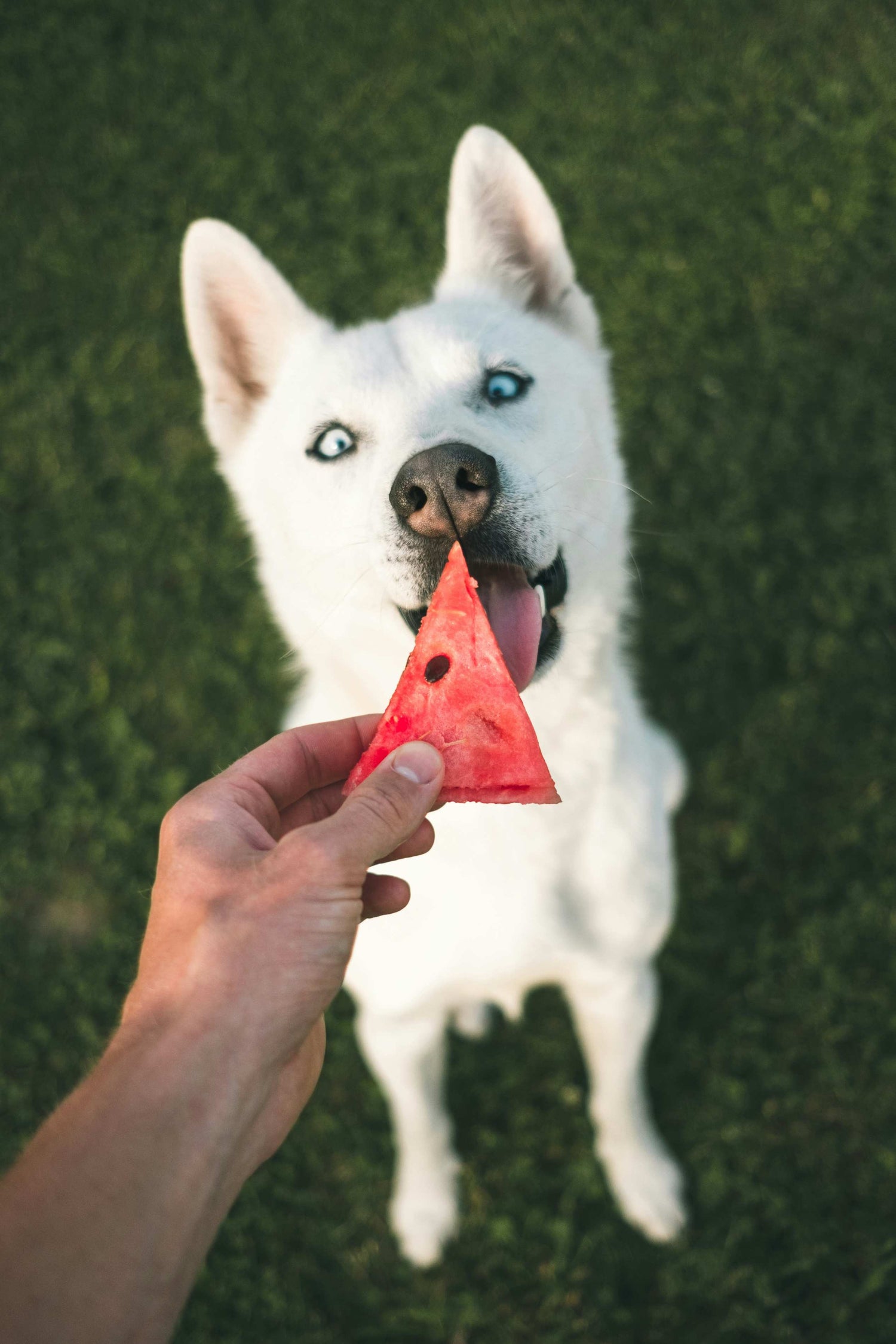Paws and Plates: A Comprehensive Guide to What Dogs Can Eat from 2Kings

In the world of pet ownership, understanding what your furry friend can and cannot eat is essential for their health and happiness. At 2Kings, we prioritize the well-being of your beloved canine companions, which is why we've put together this comprehensive guide to help you understand the dietary guidelines and pitfalls for dogs that are crucial for their health and happiness. From fruits to vegetables, fish to forbidden foods, let's delve into what's safe and nutritious for your canine friend's plate.

What Fruits Can Dogs Eat?
Fruits can be a tasty and nutritious addition to your dog's diet, but not all fruits are safe for consumption. Here are some fruits that are not only safe for your pooch but also packed with vitamins and minerals:
- Apples: Rich in vitamins A and C, as well as fiber, apples make for a crunchy and refreshing treat for dogs. Just remember to remove the seeds and core before feeding.
- Bananas: High in potassium and carbohydrates, bananas are a great source of energy for active pups. They're also easy to digest and can be served mashed or sliced.
- Blueberries: These little blue gems are packed with antioxidants and can help boost your dog's immune system. Serve them fresh or frozen for a tasty and healthy snack.
For more information on safe fruits for your dog, consult RSPCA's nutritional advice.

What Vegetables Can Dogs Eat?
Vegetables are another excellent addition to your dog's diet, providing essential nutrients and fiber. Here are some veggies that are safe and beneficial for your canine companion:
- Carrots: Crunchy and low in calories, carrots are great for your dog's dental health and provide a healthy dose of vitamin A.
- Sweet Potatoes: Loaded with vitamins and fiber, sweet potatoes are a nutritious alternative to commercial dog treats. They can be served cooked or dehydrated.
- Green Beans: Rich in vitamins K and C, as well as fiber, green beans are a healthy snack for dogs and can even help with weight management.
For more insights into dog-friendly vegetables, check out PDSA's guide on pet diets.

What Can't Dogs Eat?
While it's important to know what foods are safe for your dog, it's equally crucial to be aware of foods that can be harmful or even toxic to them. Some foods to avoid giving your dog include:
- Chocolate: Contains theobromine, which can be toxic to dogs and cause symptoms like vomiting, diarrhea, and even seizures.
- Grapes and Raisins: Can cause kidney failure in dogs, even in small amounts.
- Onions and Garlic: Contains compounds that can damage red blood cells in dogs, leading to anemia.
For a comprehensive list of foods to avoid feeding your dog, visit Veterinary Poisons Information Service.
What Fish Can Dogs Eat in the UK?
Fish can be a healthy addition to your dog's diet, providing essential omega-3 fatty acids and protein. When it comes to feeding fish to your dog in the UK, some safe options include:
- Salmon: Rich in omega-3 fatty acids, salmon can help support your dog's skin and coat health. Make sure it's cooked and boneless before serving.
- Mackerel: Another oily fish rich in omega-3s, mackerel can be beneficial for dogs with joint issues or skin allergies.
- Haddock: A lean white fish that's easy to digest, haddock can be a good source of protein for dogs with sensitive stomachs.
For more information on feeding fish to your dog in the UK, refer to British Veterinary Association's recommendations.

Conclusion:
Your dog's diet plays a crucial role in their overall health and well-being. By understanding what foods are safe and nutritious for them, you can ensure they lead a happy and healthy life. Remember to always consult with your veterinarian before making any significant changes to your dog's diet.
Embark on more adventures with your canine companion by checking out our ultimate guide to traveling with dogs at 2Kings. We're here to support you every step of the
way on your journey as a dog owner. Our commitment at 2Kings is not just to provide the highest quality dog harnesses, but also to ensure that every aspect of your dog's life is enriched and cared for, including their diet. With the right nutrition, your dog can enjoy a vibrant, energetic life alongside you, filled with endless adventures and joy.
Navigating the world of canine nutrition can seem daunting, but armed with the right information, you can make choices that will enhance your dog's health and happiness. Remember, each dog is unique, with their own tastes, preferences, and nutritional needs. What works for one dog might not work for another, so it's important to observe how your dog responds to different foods and adjust their diet accordingly.
As you integrate new foods into your dog's diet, watch for any signs of allergies or digestive upset, such as itching, ear infections, or changes in bowel movements. If you notice any adverse reactions, consult your veterinarian to determine the best course of action.
At 2Kings, we believe that a healthy dog is a happy dog. That's why we're dedicated to providing you with all the resources you need to ensure your dog's diet is as nutritious and delicious as possible. From the freshest fruits and vegetables to the safest and most beneficial proteins, your dog deserves the best that nature has to offer.
Thank you for trusting 2Kings as your guide in your dog's nutritional journey. We're excited to be a part of your adventure, offering not just exceptional products for your dog's physical activities but also comprehensive advice for their overall well-being. Together, let's create a world where every dog is nourished, loved, and ready to explore.
For more tips, tricks, and guides on dog care, visit our blog at 2Kings. Here's to many happy, healthy years ahead with your furry friend!


